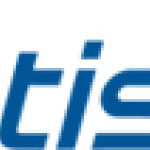- 업종: Telecommunications
- Number of terms: 29235
- Number of blossaries: 0
- Company Profile:
ATIS is the leading technical planning and standards development organization committed to the rapid development of global, market-driven standards for the information, entertainment and communications industry.
In broadcast and cable television, the insertion, into the blank lines between frames, of information that may be decoded and displayed on the screen as written words corresponding to those being spoken and transmitted via the conventional audio subcarrier. Note: Closed captioning, developed for the hearing-impaired, requires a special decoder, which may be external to, or built into, the television receiver. Closed captioning is mandated by the Americans with Disabilities Act of 1990.
Industry:Telecommunications
In broadband ISDN (B-ISDN,) applications, the processing of audio and video information after contribution and prior to final use.
Industry:Telecommunications
In bit-oriented systems, the transmission of bit strings. 2. In character-oriented systems, the transmission of bit streams that represent characters. Note: In bit-stream transmission, the bits usually occur at fixed time intervals, start and stop signals are not used, and the bit patterns follow each other in sequence without interruption.
Industry:Telecommunications
In B-ISDN applications, the use of broadband transmission of audio or video information to the user for post-production processing and distribution.
Industry:Telecommunications
In binary-coded data, a condition that is maintained such that, in any permissible coded expression, the total number of 1s, or 0s, is always odd or always even. Note 1: Parity is used in error -detecting and error-correcting codes. Note 2: For example, in the ASCII code or in the International Telegraph Alphabet 5 (ITA-5) code as usually implemented, 7 bits are used to represent each character and 1 bit is used as a parity check bit. 2. Bit (s) used to determine whether a block of data has been altered.
Industry:Telecommunications
In automatic switching, the transfer of full control on a call to the succeeding office by sending forward the complete telephone address of the called party.
Industry:Telecommunications
In automatic link establishment (ALE) radios, the undesired condition in which the normal process of (a) scanning radio channels, (b) stopping on the desired channel, or (c) returning to scan is terminated by the equipment.
Industry:Telecommunications
In automatic direct outward telephone dialing, a digit, often a 1, or a 9, that (a) enables access to an outside facility, e.g., a PBX or local exchange, and (b) is prefixed to the specific number being dialed. Note 1: Throughout the United States, an access digit, usually 1, must be prefixed to an area code before dialing the area code and the specific number to which a connection is desired. Note 2: The access digit 9 is often used to establish a connection between a PBX and a local exchange.
Industry:Telecommunications
In automated systems, such as computer, communications, and control systems, the input, output, display, and processing equipment that provides the operator-system interface. 2. A configuration of input, output, display, and processing equipment that constitutes a stand-alone system not requiring external access.
Industry:Telecommunications
In automated HF radio systems, the broadcasting of a very brief signal, containing the station address, station identifier, or call sign, to permit receiving stations to measure link quality.
Industry:Telecommunications
